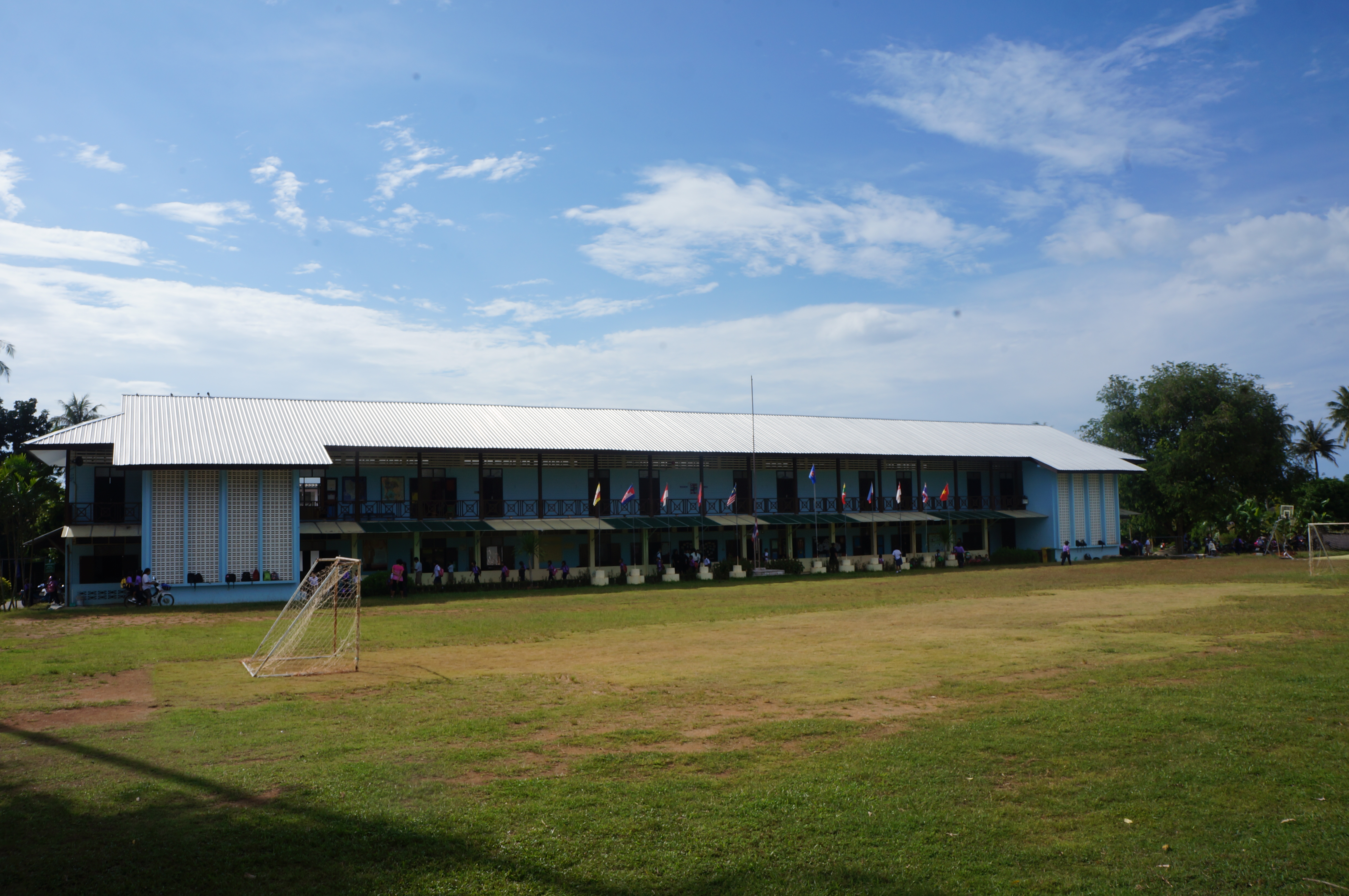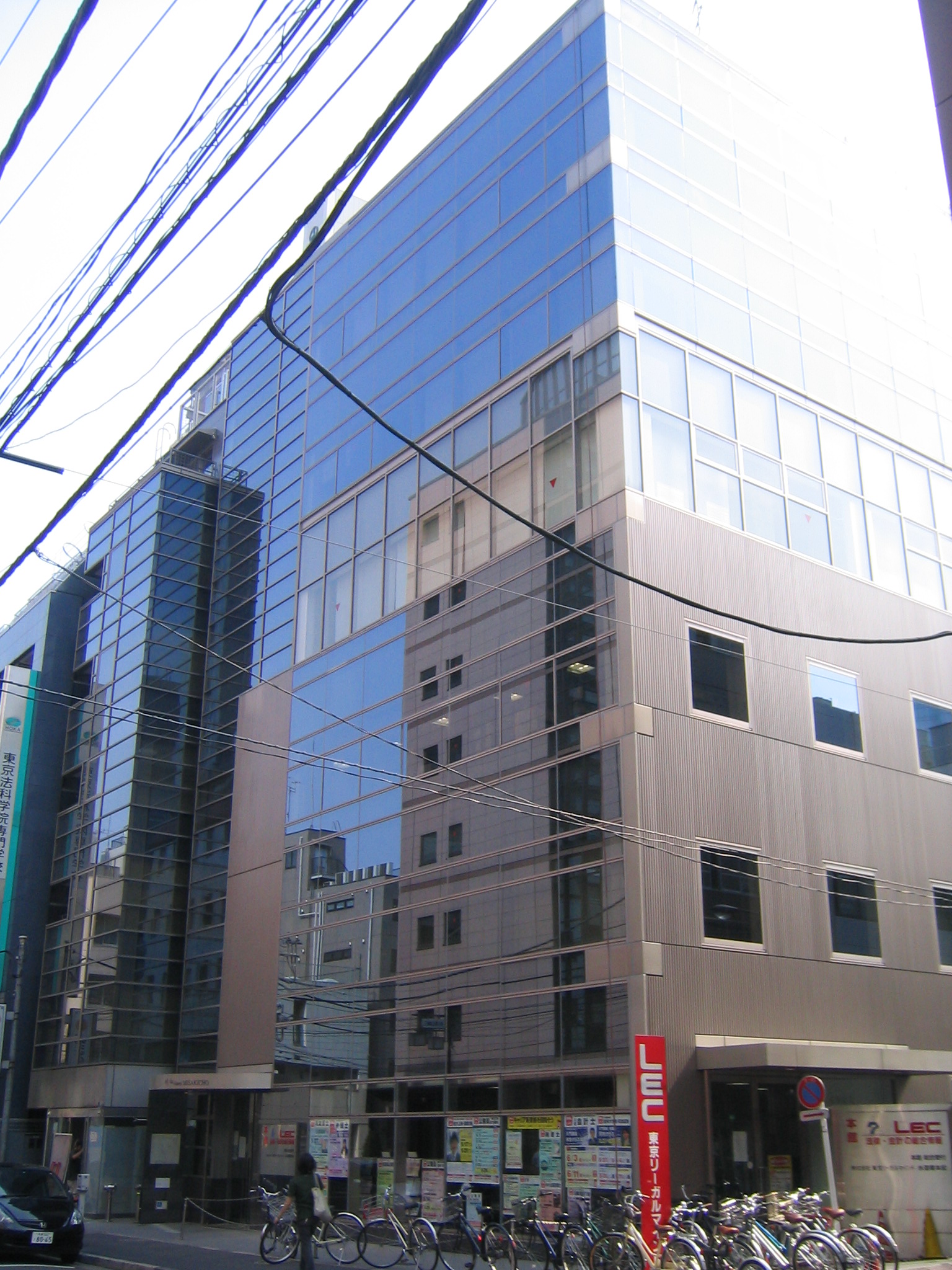|
Dek Siw
Dek siw (Thai language: เด็กซิ่ว) means "fossil student" and refers to Thai people, Thai students who have graduated from high school but not yet entered a university. ''Dek siw'' spend a year (or more) studying at home or at cram school hoping to do better on GAT-PAT, O-Net and the central examinations for a better chance to gain admittance a top Education in Thailand, university. In Thai, Dek is defined as "a child" or someone younger. In this context, "Dek" refers to students. The word ‘Siw’ comes from the word ‘fossils’ in the English language. For this situation, ‘Siw’ means to have skipped a year or transferred to another university after a year. Although Dek Siw is a noun, it can be used as a verb by reducing it to ‘Siw.’ Description Dek Siw can also specifically mean a student who transfers from one university to be a freshman at another university again. Students can choose to ‘siw’ for a variety of reasons. Primarily, there are a ... [...More Info...] [...Related Items...] OR: [Wikipedia] [Google] [Baidu] |
Thai People
Thai people ( th, ชาวไทย; ''endonym''), Central Thai people ( th, คนภาคกลาง, sou, คนใต้, ตามโพร; ''exonym and also domestically'') or Siamese ( th, ชาวสยาม; ''historical exonym and sometimes domestically''), T(h)ai Noi people ( th, ไทยน้อย; ''historical endonym and sometimes domestically''), in a narrow sense, are a Tai ethnic group dominant in Central and Southern Thailand (Siam proper). Part of the larger Tai ethno-linguistic group native to Southeast Asia as well as Southern China and Northeast India, Thais speak the Sukhothai languages ( Central Thai and Southern Thai language), which is classified as part of the Kra–Dai family of languages. The majority of Thais are followers of Theravada Buddhism. As a result of government policy during the 1930s and 1940s resulting in successful forced assimilation of many the various ethno-linguistic groups in the country into the dominant Thai language and ... [...More Info...] [...Related Items...] OR: [Wikipedia] [Google] [Baidu] |
University
A university () is an institution of higher (or tertiary) education and research which awards academic degrees in several academic disciplines. Universities typically offer both undergraduate and postgraduate programs. In the United States, the designation is reserved for colleges that have a graduate school. The word ''university'' is derived from the Latin ''universitas magistrorum et scholarium'', which roughly means "community of teachers and scholars". The first universities were created in Europe by Catholic Church monks. The University of Bologna (''Università di Bologna''), founded in 1088, is the first university in the sense of: *Being a high degree-awarding institute. *Having independence from the ecclesiastic schools, although conducted by both clergy and non-clergy. *Using the word ''universitas'' (which was coined at its foundation). *Issuing secular and non-secular degrees: grammar, rhetoric, logic, theology, canon law, notarial law.Hunt Janin: "The university ... [...More Info...] [...Related Items...] OR: [Wikipedia] [Google] [Baidu] |
Cram School
A cram school, informally called crammer and colloquially also referred to as test-prep or exam factory, is a specialized school that trains its students to achieve particular goals, most commonly to pass the entrance examinations of high schools, or universities. The English name is derived from the slang term '' cramming'', meaning to study hard or to study a large amount of material in a short period of time. Education Cram schools may specialize in a particular subject or subjects, or may be aligned with particular schools. Special cram schools that prepare students to re-take failed entrance examinations are also common. As the name suggests, the aim of a cram school is generally to impart as much information to its students as possible in the shortest period of time. The goal is to enable the students to obtain a required grade in particular examinations, or to satisfy other entrance requirements such as language skill (e.g.: IELTS). Cram schools are sometimes criticised, ... [...More Info...] [...Related Items...] OR: [Wikipedia] [Google] [Baidu] |
Education In Thailand
Education in Thailand is provided mainly by the Thai government through the Ministry of Education from pre-school to senior high school. A free basic education of fifteen years is guaranteed by the Thai constitution. Education in Thailand mandates nine years of "basic education" (six years of elementary school and three years of lower secondary school). Education at public schools is free until grade 9. The government provides, in addition, three years of free pre-school and three years of free upper-secondary education. Neither is mandatory. Children are enrolled in elementary school from the age of six and attend for six years, Prathom 1 to Prathom 6. Elementary school classes is at least 7 hours per day, with a maximum learning time of 1,000 hours per year. Secondary education starts at age 12. It consists of three years of lower secondary education, Mattayom 1 to Mattayom 3, and three years of upper secondary education, Mattayom 4 to Mattayom 6. Compulsory education ends with ... [...More Info...] [...Related Items...] OR: [Wikipedia] [Google] [Baidu] |
Bangkok Post
The ''Bangkok Post'' is an English-language daily newspaper published in Bangkok, Thailand. It is published in broadsheet and digital formats. The first issue was sold on 1 August 1946. It had four pages and cost one baht, a considerable amount at the time when a baht was a paper note. It is Thailand's second oldest newspaper and the oldest still in publication. The daily circulation of the ''Bangkok Post'' is 110,000, 80 percent of which is distributed in Bangkok and the remainder nationwide. From July 2016 until mid-May 2018, the editor of the ''Bangkok Post'' was Umesh Pandey. On 14 May 2018, Umesh was "forced to step down" as editor after refusing to soften coverage critical of the ruling military junta. History The ''Bangkok Post'' was founded by Alexander MacDonald, a former OSS officer, and his Thai associate, Prasit Lulitanond. Thailand at the time was the only Southeast Asian country to have a Soviet Embassy. The U.S. embassy felt it needed an independent, but generall ... [...More Info...] [...Related Items...] OR: [Wikipedia] [Google] [Baidu] |
Cram School
A cram school, informally called crammer and colloquially also referred to as test-prep or exam factory, is a specialized school that trains its students to achieve particular goals, most commonly to pass the entrance examinations of high schools, or universities. The English name is derived from the slang term '' cramming'', meaning to study hard or to study a large amount of material in a short period of time. Education Cram schools may specialize in a particular subject or subjects, or may be aligned with particular schools. Special cram schools that prepare students to re-take failed entrance examinations are also common. As the name suggests, the aim of a cram school is generally to impart as much information to its students as possible in the shortest period of time. The goal is to enable the students to obtain a required grade in particular examinations, or to satisfy other entrance requirements such as language skill (e.g.: IELTS). Cram schools are sometimes criticised, ... [...More Info...] [...Related Items...] OR: [Wikipedia] [Google] [Baidu] |
Hagwon
Hagwon () is the Korean-language word for a for-profit private institute, academy, or cram school prevalent in South Korea. Although most widely known for their role as "cram schools", where children can study to improve test scores, hagwons actually perform several educational functions: * supplementary education that many children need just to keep up with the regular school curriculum * remedial education for the children who fall behind in their work * training in areas not covered in schools (or covered poorly in public schools) * preparation for students striving to improve test scores and preparing for the high school and university entrance examinations (the university entrance exam is also called suneung (수능)) Many other children, particularly younger children, attend nonacademic hagwons for piano lessons, art instruction, swimming, and taekwondo (태권도). Most young children in South Korea attend a hagwon. Hagwons also play a social role; occasionally children as ... [...More Info...] [...Related Items...] OR: [Wikipedia] [Google] [Baidu] |
Rōnin (student)
In Japan, a is a student who has graduated from middle school or high school but has failed to enter a school at the next level, and consequently is studying outside of the school system for entrance in a future year.浪人 at Japanese-English dictionariesプログレッシブ和英中辞典 oニューセンチュリー和英辞典 ''Rōnin'' may study at a ''yobikō''. Etymology The term ''rōnin'' is colloquial; the word is more formal. The term derives from their having no school to attend, as a ''rōnin'', a masterless samurai, had no leader to serve. Sometimes, the term 二浪 (short form) or 二年浪人 (full form, 二年 - second year) is used for student who failed exams twice. In popular culture ''Rōnin'' appear frequently in fiction and Japanese popular culture. As an example, the manga and anime series ''Love Hina'' features three main characters, Keitaro Urashima, Naru Narusegawa, and Mutsumi Otohime, who are described as ''rōnin'' throughout most of the serie ... [...More Info...] [...Related Items...] OR: [Wikipedia] [Google] [Baidu] |
Jaesusaeng
Jaesusaeng () is a Korean term for high school students who decide to spend a year studying to re-take the College Scholastic Ability Test, hoping to get a higher score and enter the university of their choice. Attending university has a major impact on their future careers. The equivalent term in Japan is ''rōnin''. Social context Gaining entrance to the extremely competitive and prestigious SKY universities in Seoul requires that some students become ''jaesusaeng'' after an initial less-than-stellar performance on the national exam. Korea is "prepossessed by social status and reputation," and a SKY education is the main way to gain social status. Generally, the public education system is not enough to prepare students for the exam, so most students attend after school lessons at various ''hagwon'' ( cram schools). The fierce competition for enrollment at prestigious universities is called "entrance exam war" (). Effects The stress from constant study and limited social l ... [...More Info...] [...Related Items...] OR: [Wikipedia] [Google] [Baidu] |
Gaokao
The National College Entrance Examination (NCEE), commonly known as the gaokao (), is a standardized college entrance exam held annually in mainland China. It is required for entrance into almost all higher education institutions at the undergraduate level, including for short cycle (2 year) and long cycle (4 year) degree programs. It is usually taken by students in their third and last year of senior high school, but the age requirement was abolished in 2001. The exams last about nine hours over a period of two or three days, depending on the province in which it is held. The Standard Chinese language and mathematics are included in all tests. Candidates can choose one subject from English, French, Japanese, Russian, German or Spanish for the foreign language portion of the test, with most students selecting English. In most regions, students must also choose between either the liberal-arts-oriented concentration () or the natural-science-oriented concentration (). Students w ... [...More Info...] [...Related Items...] OR: [Wikipedia] [Google] [Baidu] |
Juku
''Gakushū juku'' ( ja, 学習塾; see cram school) are private, fee-paying schools that offer supplementary classes often in preparation for key school and university entrance exams. The term is primarily used to characterize such schools in Japan. Juku typically operate after regular school hours, on weekends, and during school vacations. History Juku attendance rose from the 1970s through the mid-1980s; participation rates increased at every grade level throughout the compulsory education years. This phenomenon was a source of great concern to the Ministry of Education, which issued directives to the regular schools that it hoped would reduce the need for after-school lessons, but these directives had little practical effect. Some juku have branches in the United States and other countries to help children living abroad catch up with students in Japan. While new media have been introduced into juku as instructional and delivery methods, traditional teaching is increasingly ... [...More Info...] [...Related Items...] OR: [Wikipedia] [Google] [Baidu] |


